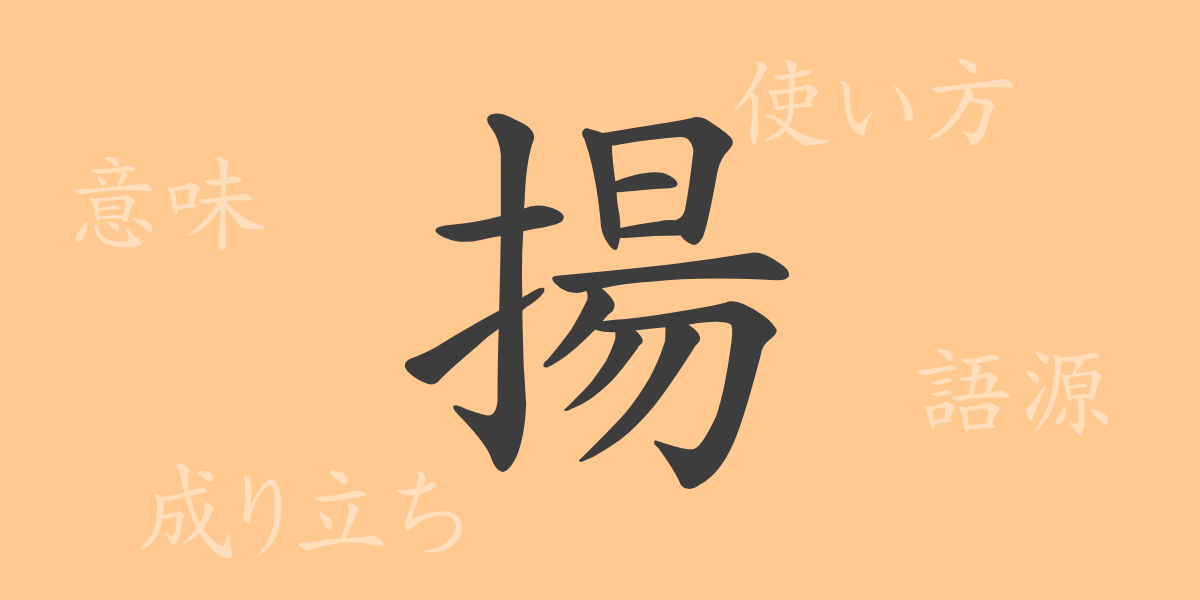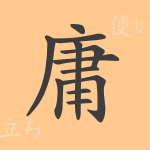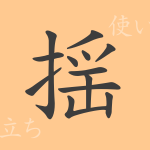Among the written characters of Japan, 漢字 are known for their complex structure and rich meanings. Understanding the deep history and culture each character holds is key to appreciating the beauty of the Japanese language. This time, we shine a spotlight on the commonly used kanji “揚(よう)”, exploring its etymology and modern usage. We delve into how this single character has become an integral part of daily life in Japan, uncovering its charm.
The Origin of 揚(ようyō)
The kanji “揚(よう)” is a character passed down from ancient China. It is composed of “扌(てへん)”, which resembles the shape of a hand, and “昜(よう)”, which indicates rising. Since “昜(よう)” represents the sun rising, “揚(よう)” came to mean “to lift by hand” or “to raise high”. Over time, this kanji has been used in various cultures, acquiring a wide range of meanings and usages.
Meanings and Usages of 揚(ようyō)
The kanji “揚(よう)” signifies “to raise”, “to elevate”, and “to spread”. Specifically, it is used in contexts like raising a flag, elevating one’s reputation, or raising one’s voice. This character is used in a variety of scenes, from physical actions of lifting upwards to metaphorically enhancing reputation or voice. Thus, the meaning of the character can carry diverse nuances depending on the context in which it is used, which is a hallmark of kanji.
Readings, Stroke Count, and Radical of 揚(ようyō)
Understanding the readings and components of the kanji “揚(よう)” can deepen its comprehension.
- Readings: The 音読み (Chinese reading) is “よう(yō)”, and the 訓読み (Japanese reading) is “あげる(ageru)” or “あがる(agaru)”.
- Stroke Count: It consists of 12 strokes in total.
- Radical: The radical is “扌(てへん)”.
Idioms, Proverbs, and Phrases Using 揚(ようyō)
Here are some idioms, proverbs, and phrases that include “揚(よう)”:
- “揚々と“: A word that describes a state of being vigorous and proud.
- “揚羽蝶“: A type of beautiful butterfly, whose spreading wings resonate with the meaning of “揚(よう)”.
- “名を揚げる“: Means to enhance one’s reputation or to spread one’s fame.
- “手を揚げる“: Means to surrender or to signal by raising one’s hand.
- “揚句の果て“: An expression meaning “in the end” or “ultimately”.
These expressions are widely used in daily conversations and literary works, showcasing the richness of the meanings held by “揚(よう)”.
Summary of 揚(ようyō)
The kanji “揚(よう)” possesses diverse meanings and usages from its formation to the present day. This single character, which expresses everything from physical elevation to the abstract concepts of enhancing reputation or voice, symbolizes the richness of Japanese expression. As seen in idioms and proverbs, it is a kanji deeply rooted in the hearts of Japanese people and will continue to evolve along with the culture.
“`

























